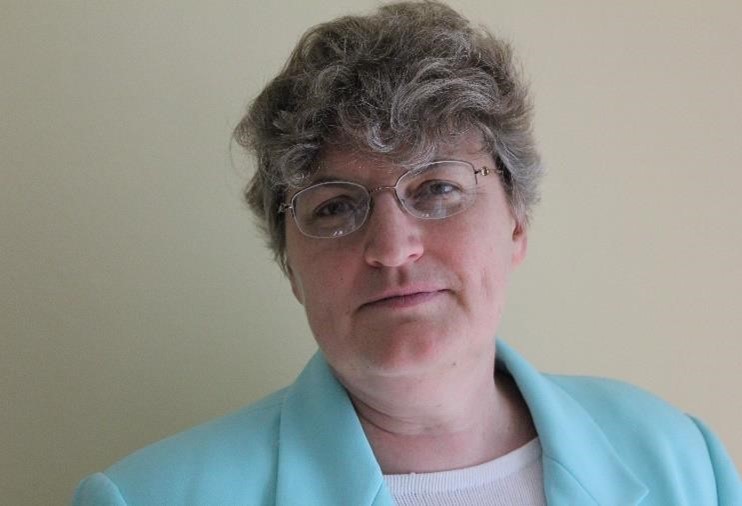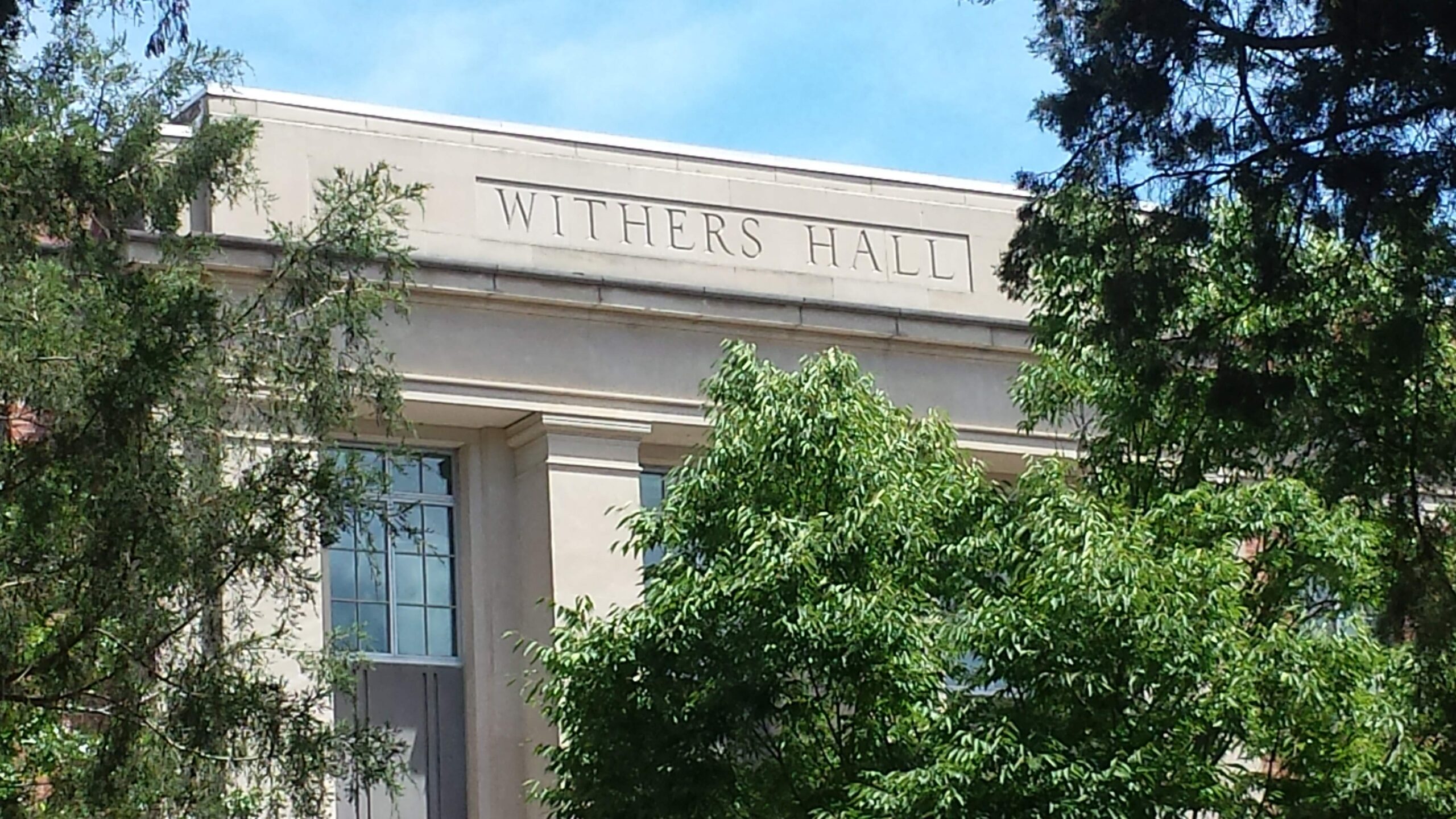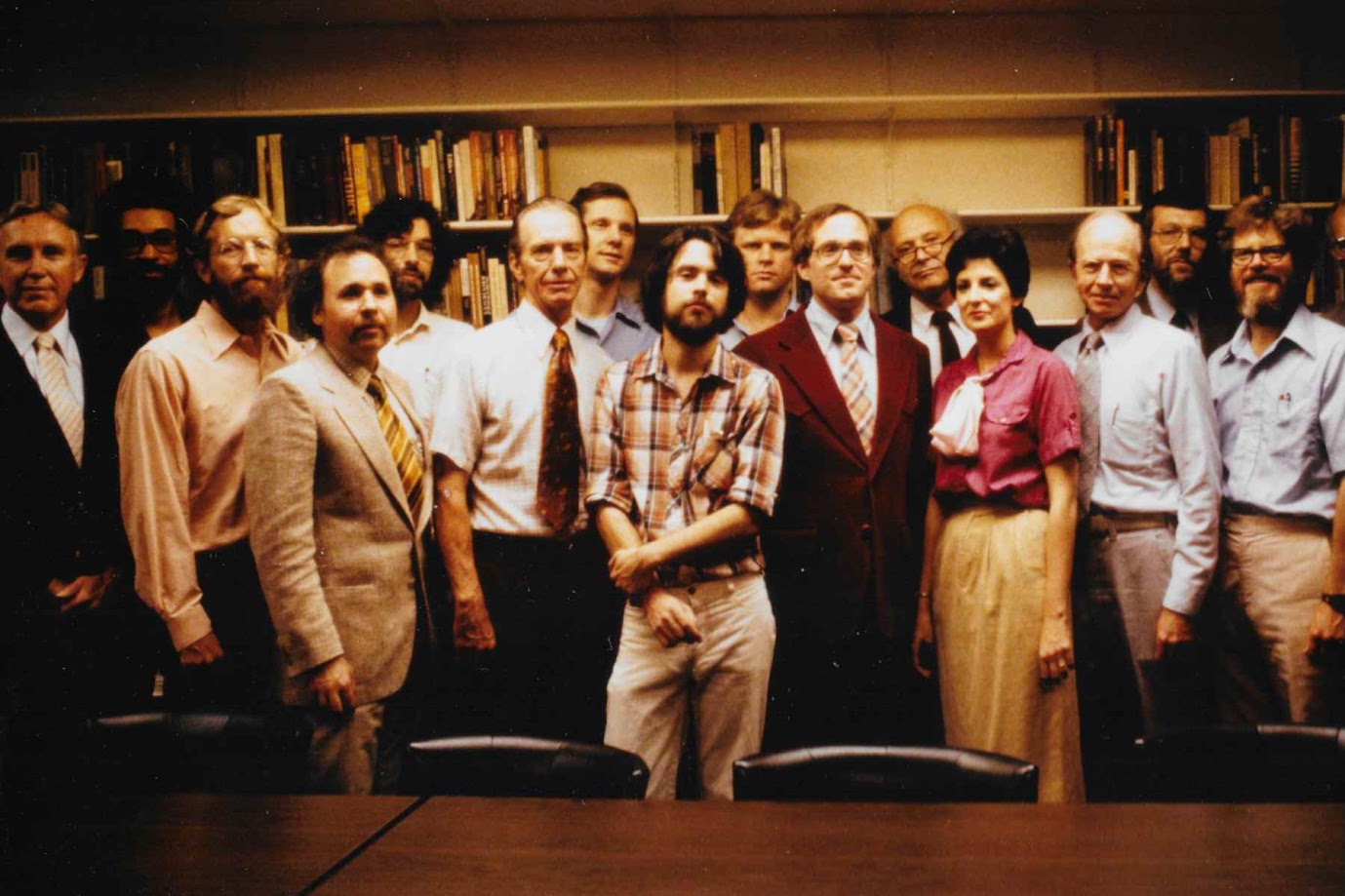Bykova on German Idealism and the War in Ukraine

The following interview of Dr. Marina Bykova, Professor of Philosophy at NC State, was first published as: Marina F. Bykova, “Living in Illusion is Dangerous,” Studia Humana, Volume 13:1/2 (2024), pp. 65–70, DOI: 10.2478/sh-2024-0010. If quoting please use this reference.
*****
Andrew Schumann: German philosophy has long set the standards for philosophical thought. In the nineteenth century, Polish and Russian philosophy developed under its direct influence. How significant is German philosophy today? In what areas of philosophical research is it most relevant?
Marina F. Bykova: You are asking a very interesting question. As a scholar of German idealism, I am engaged with German philosophy in its historical and contemporary manifestations.
Indeed, nineteenth-century German philosophy was enormously influential and rich in content. It would not be an exaggeration to say that it reached its zenith in German idealism, a cultural phenomenon often likened to the Golden Age of Athens. In Germany, this intellectual epoch is commonly referred to as “classic German philosophy.” In addition to the most famous philosophical figures of the era, such as Kant, Fichte, Schelling, and Hegel, this intellectual period is also marked by the work of many other thinkers, including Friedrich Jacobi, Karl Reinhold, Friedrich Schleiermacher, as well as a creatively interactive group of German Romantics that includes literary giants such as Schiller, Goethe, Hölderlin, Novalis (Friedrich von Hardenberg), the brothers Schlegel (Friedrich and Wilhelm), and many other intellectuals with great talents in aesthetics and science. After Hegel’s death in 1831, German philosophy faced an identity crisis, but it continued to thrive, producing new thinkers, ideas, theories, and schools that set the tone for philosophical development in Europe and beyond through the second half of the nineteenth century and into the twentieth century. In addition to the well-known figures of Feuerbach, Marx, and Nietzsche, this period also produced such notable thinkers as Wilhelm Dilthey, Eduard von Hartmann, Adolf Trendelenburg, and other highly original philosophical minds. When it comes to philosophical movements, Neo-Kantianism, originating in German universities in the 1870s as a revival of Kant’s philosophy, dominated the country’s philosophical landscape until the First World War. Starting as an epistemological movement and later extending over the entire domain of philosophy, it had a significant impact on contemporary and subsequent philosophical thought, echoed in the early works of Edmund Husserl and Martin Heidegger.
With these two thinkers, we have transitioned into the twentieth century. Looking back at the history of German philosophy from our present, some argue that the rich tradition of German philosophy tapered off, and in the latter half of the twentieth century, France emerged as the intellectual leader of Europe, especially in attempting to transcend the intuitions of individuals engaged in regular political and social life. However, this viewpoint is fraught with tension and reveals a deep-seated division. After the conclusion of World War II, German philosophy faced another crisis, triggered by the traumas of National Socialism and the war. Karl Jaspers, in his lectures published during the Nuremberg trials under the title Die Schuldfrage (The Question of German Guilt, 1946), publicly posed the emotionally-charged question of German guilt and responsibility for the war’s devastation. He advocated critical self-reflection as the sole path toward cultural and political renewal in Germany. The pursuit of critical reflection significantly influenced one of the primary currents of German philosophical thought during that period, which increasingly shifted focus toward social critique, political theory, and morality – central themes for the Frankfurt School in its first and second waves.
Another prevailing tradition was phenomenology, which Husserl considered the genuine means of overcoming the “crisis of humanity.” This theme was also central to early Heideggerian existential phenomenology, where it is explored on the plane of “authenticity.” In his later works, Heidegger proposed a solution wherein the re-enchantment of reality emanates from within our human agency-in-the-world.
Despite the serious geopolitical upheavals in which Germany played a grim role, the trajectory of German philosophy in the twentieth century was no less exciting and diverse than in the previous century. In addition to figures like Husserl and Heidegger, the philosophical pantheon includes renowned German thinkers such as Max Weber, Oswald Spengler, Hans-Georg Gadamer, Max Horkheimer, Theodor W. Adorno, Hannah Arendt, Herbert Marcuse, and Jűrgen Habermas, to name just a few. These philosophers, among the most famous and studied of the century, played central roles in major philosophical movements like neo-Hegelianism, phenomenology, existentialism, hermeneutics, and critical theory, many of which were originated or advanced in their works.
Given the persistent development of German philosophy over the past two centuries, it is only natural to wonder about its contemporary state. This question is particularly crucial as some commentators express skepticism regarding the current role of German philosophy within the country and on the global stage, suggesting a decline in visibility. I, however, believe this to be a false impression. In my view, Germany remains a wellspring of profound philosophical ideas and practices, addressing issues central to the contemporary world and significantly contributing to the advancement of human knowledge. This holds true not only for areas such as the history of philosophy (represented by figures like Markus Gabriel, Hans Sluga, Vittorio Hösle, Hermann Lübbe, Pirmin Stekeler-Wethofen, Jens Timmerman,and Frithjof Bergmann), cultural theory/hermeneutics (with scholars like Gadamer, Peter Sloterdijk, and Kuno Lorenz), and political and social philosophy (featuring luminaries like Habermas, Axel Honneth, Tatjana Višak, Rainer Forst, Thomas Pogge, Peter Herrmann, and Hans Albert), in which Germans have traditionally excelled, but also in emerging fields like cognitive science (with thinkers such as Thomas Metzinger, Sebastian Rödl, Thomas Khurana, and Hans-Werner Bothe), philosophy of religion (represented by Ruth Lapide), media theory and media ethics (led by Friedrich Kittler and Alexander Filipović), feminism (with contributions from Frigga Haug), information science (guided by Ingetraut Dahlberg), aesthetics (with scholars like Wolfgang Scheppe and Andreas Dorschel), and more.
It is also significant to acknowledge a noteworthy shift in the approach to philosophy and the understanding of its role that we can currently observe in Germany. I am referring to a visible effort to overcome the notion of philosophy as largely theoretical and elitist, the perception of being detached from reality and confined to the ivory tower, and to make the discipline more practically relevant to the challenges of everyday life and thus more appealing to a broader audience. While over the previous two centuries, German philosophy primarily saw its main purpose as the critique of everyday life, excelling in this endeavor, contemporary German practitioners of philosophy appear to be radically reconsidering its social function. They aim to provide intellectual tools that sustain everyday human existence and contribute to improving the conditions in which life is lived.
In fact, it was Habermas who, in his early work, introduced a new, rather optimistic philosophical discourse that went beyond the pessimism of the Frankfurt School’s first generation. As one of the most influential public intellectuals in Europe and the world, he utilized public platforms to advocate for this cause. Following in his wake, German philosophers of a new wave have taken the task of publicly promoting philosophical knowledge and making the discipline more relevant to contemporary issues even further. In addition to relying on old academic practices, they also introduced new ones, including the production of popular philosophy books and magazines, offering engaging TED talks, organizing philosophy festivals, and hosting TV shows with philosophical content. Their efforts are already paying off: philosophy in Germany is booming, reflected in growing student enrollment in philosophy courses and an increased demand for ideas within society.
Andrew Schumann: In the book edited by Nikolaj Plotnikov and entitled In the Face of Catastrophe [Перед лицом катастрофы] (Münster: LIT Verlag, 2023), the authors, Russian philosophers, try to answer the following significant question: what philosophical premises made it possible to create a militaristic ideology that emphasized the uniqueness of Russian culture over all others? How important is it for Russian philosophers to reflect on their responsibility for the war in Ukraine?
Marina F. Bykova: I am familiar with the collection of essays edited by Nikolaj Plotnikov. The volume’s contributors, who, along with professional philosophers, also include historians, sociologists, cultural studies scholars, and essayists, attempt an intellectual analysis of the Putin regime’s aggression against Ukraine, seeking to understand social, political, and historical origins of the catastrophe unrolling before our eyes. This is one of the first Russian publications of that kind, and it is very thoughtful and timely. While it may be too early to determine its impact on Russian society, the fact it has already been banned for distribution within the country by the authorities suggests that it is garnering significant attention.
Recognizing a responsibility to society is paramount for intellectuals, especially during critical times of national crisis like the one we are currently experiencing. The war in Ukraine, initiated by Putin’s regime, has starkly exposed the problems within Russian society. However, it has also provided an opportunity for intellectuals and the educated classes in general to reclaim and publicly realize their primary role in upholding the preconditions of democratic culture. Intellectuals today bear the responsibility to accurately assess the current crisis, critically reflect on its causes, and strive to develop a synthetic understanding of the present situation in connection with the past and the future.
The recognition of this responsibility inspired me to propose to my fellow Russian émigré colleagues the idea of assembling a collection of essays. This volume, titled At the Vanishing Point in History, is currently in production by Bloomsbury Academics and is scheduled for release later this year. The collection aims to address the dire realities unfolding in Ukraine and respond to the calamity that Russia has brought upon itself. Its primary focus is on Russia, which currently stands at a critical historical crossroads, precariously balancing on the brink of oblivion. Composed in English, the volume is primarily intended for Western readers who may require assistance in navigating difficult terrains of Russian history, culture, and politics. Beyond being an endeavor for a critical analysis of the present by conceptualizing it within early and recent Russian history and intellectual development, this collection also serves as a significant declaration of the authors’ civic position as intellectuals deeply concerned about Russia and its future.
In response to your question regarding the importance of Russian philosophers contemplating their responsibility for the war in Ukraine, it is essential to recognize the significant influence of ideas and ideologies on Russian politics. The conflict with Ukraine represents just one of the recent, and arguably most tragic, instances illustrating the impact of ideas on politics, providing a rationale for condemnable actions. Putin’s choice to invade Ukraine in February 2022 is difficult to comprehend without considering the prevailing Russian ideological landscape, currently characterized by the belligerent ideology of the “Russian world.”
I share your perspective that one of the root causes of the current tragedy lies in the exceptionalist agenda deeply embedded in Russia, with its origins tracing back centuries. In the history of Russian philosophy, this agenda can be discerned through the influence of the Slavophiles. However, as a distinct worldview, it permeated national and social consciousness long before formal articulation in public doctrines. Notably, exceptionalist ideas resurfaced as a central theme in late-nineteenth, early-twentieth century Russian philosophy, gaining renewed emphasis in the works of Vladimir Solovyov, Nikolai Berdyaev, Semyon Frank, Fyodor Dostoevsky, and some other key thinkers of that era. This trend was articulated under various names such as sobornost’ (spiritual communal interconnectedness), tselostnost’ (wholeness, integrality), “national unity,” “national identity,” etc., promoting ideals of autocracy, messianic exceptionalism, and imperial nationalism. Unfortunately, these ideals proved enduring in Russian history, contributing to ideocracy and totalitarianism in the first half of the twentieth century.
It is crucial to acknowledge that Russia’s claim to exceptionality, uniqueness, and supremacy poses significant dangers both in political affairs, including international relations with other independent states, and in the realm of creative thought, including philosophical discourse. In this sense, Russian professional philosophers and other intellectuals, who shape the collective societal consciousness through their work, certainly have the important duty of carefully defining and accurately interpreting historical ideas and the meanings inherited from tradition, as well as those newly introduced into public discourse. Moreover, there is an urgent need for the careful analysis and balanced evaluation of the Russian philosophical tradition. In the aftermath of Russia’s invasion of Ukraine, there is also an immediate need for a new and objective reinterpretation of Russian culture as a whole. This reevaluation should extend to classical figures and works, subjecting them to critical scrutiny from the perspectives of exceptionalism and national messianism. Such an intellectual endeavor is vital for fostering a nuanced understanding of the cultural and philosophical underpinnings that have contributed to the current geopolitical situation.
Andrew Schumann: What is your personal position on the responsibility of Russians for the war? Is there collective responsibility?
Marina F. Bykova: I personally do not believe in the concept of the collective guilt of a nation, as proposed by Karl Jaspers, and I also reject the notion of “collective responsibility” in any literal sense. Stating that all Russians are responsible for the war in Ukraine implies that Russians, as a people, are more prone to war and violence than others. This assertion borders on racism, does it not?
However, these considerations do not diminish the importance of taking responsibility. We cannot avoid bearing responsibility for the actions of the society we are part of. In today’s fractured world, we all have obligations toward humanity. As citizens of our respective states, we also have a duty and responsibility to contribute positively to our communities and strive for the betterment of society as a whole. It is hard to admit that your home country is the aggressor, but living in illusion is dangerous. Therefore, it is crucial for Russians to recognize their personal responsibility for the atrocities committed in their name, however painful it may be. The entire Russian nation and each Russian individually must deeply feel the tragedy and pain that the war unleashed by Putin’s regime has inflicted on Ukraine and its people.
There is another relevant detail I would like to mention. While many Western observers reject the idea of collective guilt, some argue that Russians are guilty in a sense of “crimes of omission”—not actively opposing Putin and his regime. As we know, many people did take to the streets at the end of February – early March 2022, and even later, risking their own safety and that of their loved ones. Speculating about the number of protesters and blaming the lack of impact on inadequate total turnout is one perspective. However, I believe the main issue runs much deeper than just the protester count; it lies in the political immaturity of Russian society.
Democracy thrives on civil society, and, suppressed by autocracy (and now almost dictatorship), civil society has historically been weak in Russia. Therefore, it is unsurprising that Russian society is not sufficiently involved in the political affairs of the state, often demonstrating conformity with the regime. Moreover, Russia lacks a democratic culture, largely stemming from the country’s elusive and unfulfilled Enlightenment. The primary focus of Russian rulers has persistently been the preservation of imperial absolutism and the dominance of political and religious authority. This focus has hindered Russia’s chance for a genuine Enlightenment experience, similar to that which occurred in Europe.
The few decades of relative freedom that Russians enjoyed after the collapse of the Soviet Union provided insufficient time to learn even the basics of democracy and liberal ideals. Russia is in need of a new Enlightenment that reinforces the value of universalism, making it a central feature in political, social, and intellectual discourses. This broader perspective can help overcome the confines limited by “cultural specificity,” exceptionalism, and supremacy. Russians require education to enlightenment and “training to freedom” for democracy to take hold. Only an organic intellectual and social renaissance can save the nation.
Andrew Schumann: Is there any philosophical knowledge that can be considered the ideological basis of the Kremlin’s militaristic policy? For example, Alexander Dugin considers himself a follower of Vladimir Solovyov (a Russian philosopher of the nineteenth century). Among the supporters of the war are followers of Alexander Zinoviev (a logician and social thinker of the late twentieth century).
Marina F. Bykova: As mentioned earlier, certain philosophical ideas, such as the exceptionality and spiritual supremacy of Russia and its culture, are indeed actively employed by the Kremlin to justify its aggressive stance toward Ukraine. However, I do not believe that any particular philosophical thinker or individual intellectual figure can be considered an ideological “inspiration” for the war or the “constructor” of these new realities. Many utilized ideas are instead products of propaganda that fabricates new myths and fictional realities. The current Russian regime actively instrumentalizes the country’s history and intellectual tradition, exploiting both as tools to advance its political objectives. The practice of extracting historical figures from Russia’s past who, in their time, expressed ideas that bear some, albeit faint, similarity to those promoted by today’s ideologues, proves effective in influencing public consciousness. Consequently, these figures undergo a transformation, becoming officially “approved” or “accepted” thinkers, and their ideas are curated into a roster of citations available for use by regime officials. Citations are frequently taken out of context or repurposed for objectives different from those intended by the author, leading to distortion of the original meaning of the text. Such manipulations often mislead listeners or readers and undermine the integrity of the author’s work. The list of “approved” thinkers predominantly comprises Russian philosophers and writers, a choice justified by the educational level of the Russian population and its inclination toward written discourse. Among the most popular figures on this list are Fyodor Dostoevsky, Nikolai Berdyaev, Vladimir Solovyov, and most recently Ivan Ilyin who is now lauded as a “herald of future Russia.”
Neither Zinoviev nor Dugin belongs to the official “pantheon of names” curated by Kremlin propaganda. The notion that Zinoviev is “Putin’s favorite philosopher” is rather an ideological maneuver undertaken by some of his conservative admirers, with enthusiastic support of his widow, Olga Zinovieva. She is the founder and chair of the politically engaged ultra-patriotic and radically nationalistic “Zinoview Club,” which operates under the banner of “Russia Today.” Similarly, Dugin’s celebratory status as “a chief promoter of Russia’s war in Ukraine” and “Putin’s philosopher” (as declared by Austin Ramzy and Anton Troianovsky in their piece in New York Times (21 Aug., 2022); see also Michael Millerman’s article in First Things in February 2023) is very artificial and extremely inflated. While Zinoviev was indeed a philosopher engaged in research in logic and later contributed to social theory, Dugin has no connection to academic philosophy. He is more of a media personality who posits himself as a “philosophical thinker.” Until recently, he has been merely a marginal figure known only among a narrow circle of radical activists, advocates for the ideas of Eurasianism. What has brought him into prominence in the current Russian intellectual landscape is his radical-right persuasion, extreme ethnic nationalism, outspoken support for the exceptionality and civilizational supremacy of Russia, aggressive promotion of Russian “traditional values,” and fundamental confrontation with anything Western. All of these closely align with the current agenda of the Putin regime. However, despite this significant overlap, I am skeptical about the influence of Dugin’s ideas on the Kremlin and its decision-making mechanisms. It seems that Putin’s officials are even attempting to distance themselves from the extreme ideologies bordering on fascism that Dugin supports through political action and an extensive body of writings with immense range and variety. Today, the state appears to be using Dugin (along with other ultra-conservative radicals on the ideological front, such as Alexander Prokhanov, monarchist Konstantin Malofeev, “theoreticians” of the Zinoviev Club, etc.) to retroactively justify the decisions of the authorities.
Andrew Schumann: How can we stop this terrible war?
Marina F. Bykova: We must take a firm stance against Putin’s regime, whose aggressive agenda has paved the way for this war. While much debate centers on the question of responsibility, mere discourse falls short; what is imperative is decisive action, which involves the development and staunch defense of one’s position.
Do ordinary Russians truly endorse the brutality unfolding in Ukraine under their name? I believe otherwise. The majority of everyday Russians find themselves caught in the middle, confronted with a situation they neither chose nor fully grasp, feeling powerless to effect change. Some opt to disengage from politics, allowing the Kremlin to decide on their behalf. However, maintaining a low profile comes at the cost of unsettling moral compromises. As intellectuals, we are tasked with utilizing our critical faculties to objectively scrutinize the military confrontation, acknowledging its complexity through a comprehensive examination of historical and contemporary data. This endeavor also opens the door to constructive dialogue among intellectuals on both sides of the divide – a dialogue with the potential to foster peace in the Russia-Ukraine confrontation and ensure the progressive development of humanity on the global stage.


